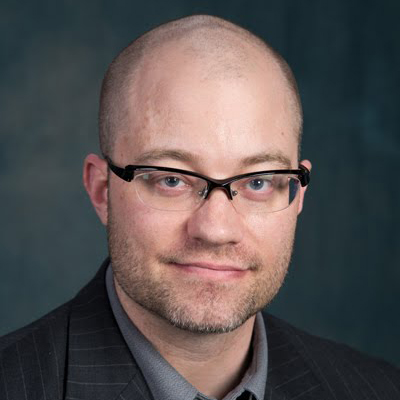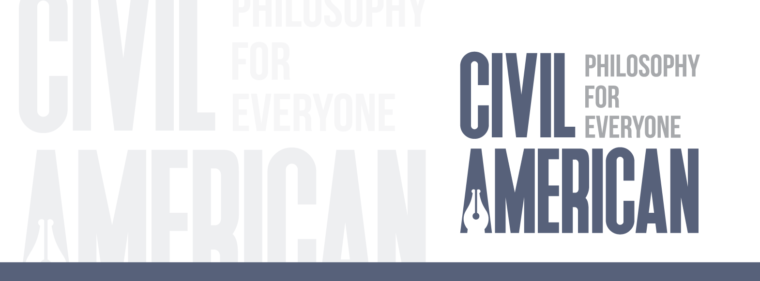The Society of Philosophers in America (SOPHIA) announces the opening of Civil American, our latest venue for public philosophical engagement, released as a peer-reviewed digital journal on our Web site. Each piece will be released individually and will then be archived in a yearly volume. Civil American is a place for scholars in philosophy or other fields, students, and SOPHIA members to submit short essays, between 700 and 3,000 words (shorter and longer pieces will be considered), on topics of importance for living and policy-making, as individuals and communities.

To these ends, we open up SOPHIA’s online space as a forum for publicly engaged philosophy, to talk about issues and problems that matter to people both in and beyond the academy. Our emphasis is on accessibility of style and importance of subject matter. Following trends of digital publishing, we will consider the pieces released here to be in a volume gathered by year.

We welcome proposals for panels of submissions from groups interested in writing on topics in common. Gathered pieces may also be invited to join together in further advancement of their projects for growth in The Public Philosophy Journal‘s developmental and open peer-review process. Shorter projects can begin here and, if desired, be lengthened and deepened through such collaborations.

Archive
Volume 2: 2017
Humanizing Monsters
October 31, 2017| By Casey Dorman | I was listening to NPR recently and an interviewer was talking to Thomas Hegghammer, a Norwegian professor of political science, who had just published an edited collection of essays/research studies called Jihadi Culture: The Art and Social Practices of Militant Islamists. One of the interviewer’s questions was “Aren’t you afraid that ...John Stuart Mill and Charlottesville
October 20, 2017| By Dale E. Miller | I consider myself a Millian—that is, a follower of the Victorian philosopher of morals, social life, and politics (and much else besides) John Stuart Mill (1806–73). Usually I’m a fairly confident Millian; some might even say smug. Mill’s work has, like the work of all important philosophers, been subjected to ...Clutter
September 16, 2017| By John Lachs | When our ancestors lived in caves, every tool was a prized possession. Furs for comfort and drawings to decorate the cave were difficult to come by. They were passed down from generation to generation. Later, when human productivity made the goods of the world readily available, our grandparents became collectors. Growing control ...State-Sponsored Hacktivism and “Soft War”
May 25, 2017| By George R. Lucas | A Moral and Legal Challenge in the Cyber Domain | Skeptics (e.g., Thomas Rid, 2013) have cast doubt on the notion of authentic cyber warfare. Cyber conflict consists, the skeptics argue, solely of activities which fall well short of full scale warfare: e.g., crime, vandalism, “hacktivism” (political activism by individuals and ...The Illusion of Purely Rational Discussion: A Reply to Courtland’s Reply
January 3, 2017| By Sergia Hay | I’d like to thank Shane Courtland for his reply to my response to his original posting, “Faith and Betrayal of the Philosophical Method.” I’m eager to continue this conversation about an important and timely subject: free speech in the classroom, and perhaps more broadly within public discourse. As such, it is also ...
Volume 1: 2016
Faith Without Dead Dogma: A Reply to Hay
December 21, 2016| By Shane Courtland | After reading a thoughtful response from Dr. Hay regarding my previous blog post, I thought it would be helpful to discuss my philosophical pedagogy. Even if you have never taken a philosophy class before, the core elements of my teaching method are still applicable outside of the classroom. Moreover, describing how ...What Philosophy Is For: A Reply to Courtland
December 13, 2016| By Sergia Hay | I wholeheartedly agree with Shane Courtland when he writes in Civil American that being a philosopher means “giving pride of place to open discussion, encouraging intellectual diversity, and allowing a difference of opinion regarding even dangerous ideas.” I also believe it means, among other things, laying bare assumptions, defining terms, distinguishing between seemingly ...Faith and Betrayal of the Philosophical Method
December 4, 2016| By Shane Courtland | Please note: The following essay is autobiographical. I thought it might be helpful to share my experience. As with all personal events, those who have experienced this on the other side have very different feelings about the situation. The way I have always viewed philosophy, regarding its practice and how it ...Breaking Out of the Bubble: Fixing American Politics
November 11, 2016| By Shane Courtland | For approximately 5 years, I was the director of the Center for Ethics and Public Policy (CEPP) at the University of Minnesota, Duluth. As the director, I was charged with producing and executing various campus wide events. My specialty, was the panel discussion. This would bring multiple experts to the table ...‘What Ifs’ and No Regrets
October 31, 2016| By Shane Courtland | One often hears the expression “You should live your life without regrets” in the same situations that one hears expressions such as “carpe diem” and “YOLO.” The basic idea is that you should live your life to the fullest. One day, if you are lucky to be living, you will be ...



Please note: The administrators of this site reserve the right to delete comments that are offensive or off-topic.